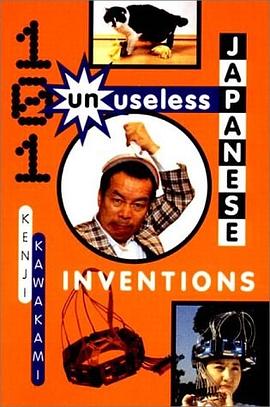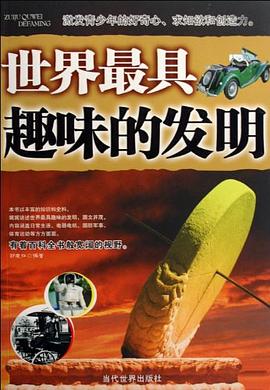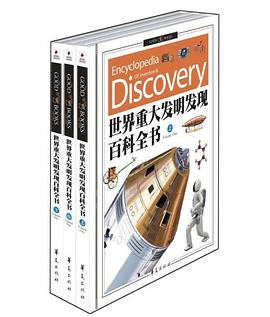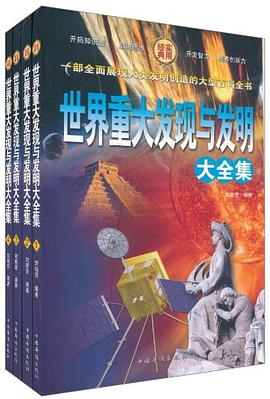

具体描述
In the final decades of the nineteenth century, three brilliant and visionary titans of America’s Gilded Age—Thomas Edison, Nikola Tesla, and George Westinghouse—battled bitterly as each vied to create a vast and powerful electrical empire. In Empires of Light , historian Jill Jonnes portrays this extraordinary trio and their riveting and ruthless world of cutting-edge science, invention, intrigue, money, death, and hard-eyed Wall Street millionaires. At the heart of the story are Thomas Alva Edison, the nation’s most famous and folksy inventor, creator of the incandescent light bulb and mastermind of the world’s first direct current electrical light networks; the Serbian wizard of invention Nikola Tesla, elegant, highly eccentric, a dreamer who revolutionized the generation and delivery of electricity; and the charismatic George Westinghouse, Pittsburgh inventor and tough corporate entrepreneur, an industrial idealist who in the era of gaslight imagined a world powered by cheap and plentiful electricity and worked heart and soul to create it.
Edison struggled to introduce his radical new direct current (DC) technology into the hurly-burly of New York City as Tesla and Westinghouse challenged his dominance with their alternating current (AC), thus setting the stage for one of the eeriest feuds in American corporate history, the War of the Electric Currents. The battlegrounds: Wall Street, the 1893 Chicago World’s Fair, Niagara Falls, and, finally, the death chamber—Jonnes takes us on the tense walk down a prison hallway and into the sunlit room where William Kemmler, convicted ax murderer, became the first man to die in the electric chair.
Empires of Light is the gripping history of electricity, the “mysterious fluid,” and how the fateful collision of Edison, Tesla, and Westinghouse left the world utterly transformed.
From the Hardcover edition.
作者简介
吉尔·琼斯:作家和历史学家,在约翰-霍普金斯大学获得博士学位。她普被授予美国福特基金会奖和国家慈善基金会奖,曾著有《南布朗克斯区兴衰史》(South Bronx Rising)和《爵士乐手、缉毒警察和白日梦》(Hep–Cats,Narcs and Pipe Dreams)。她和家人住在美国马里兰州的巴尔的摩市。
目录信息
读后感
话说三位都是技术出身,以电气工程师的角色呈现在公众面前,爱迪生发明了电灯直流电,直流电有他的优势和劣势,优势就是电流小,频度低,杀伤力弱,劣势在于无法远距离传输,而交流电是未来,我们现在使用的就是交流电和直流电的组合模式,交流电电流与电压大,可以远距离传输...
评分1.今天习以为常的生活习惯是前人的,努力和开拓的结果,本书中的电力发展历程使我立体地的认识到了这一点。 2.“idea__技术__商用__民用”的技术采用生命周期是一个长期漫长的过程,其中的任何一方都可能被利资本斗争所绑架,从而使其中断并且被延缓。 3.资本无情,利益斗争愿...
评分《光电帝国》是一本精彩的商战书。 但我更愿意把它理解成给今天中国为事业和理想奔波的人们的一本警示书。 书中的主角都是人类历史上最闪耀的天才,但他们最终都掉入了不同的陷阱。 在19世纪的最后几十年,随着爱迪生发明了白炽灯,电力开始照亮沉沉的黑夜。但一场围绕直流...
评分 评分本书介绍三个电力巨人:托马斯爱迪生,尼古拉特斯拉,乔治威斯汀豪斯在电力发展历程所做的历史贡献。爱迪生率先使用直流电,并依靠商业因素将其大力推广,然而直流电没法远程传播,为了所谓威望,毫不犹豫排斥交流电,最终还是被商人理性地“背叛”了。威斯汀豪斯,一个发明家兼...
用户评价
这本书,真的让我大开眼界。Empires of Light,它不仅仅是在讲述历史,更是在揭示一种深层的联系。作者在探讨不同文明的兴衰时,并没有将它们看作是孤立的事件,而是试图去寻找它们之间存在的共通性,以及它们是如何相互影响、相互塑造的。我尤其惊叹于作者对“连接”的理解。他认为,那些能够持久繁荣的文明,往往是那些善于建立连接的文明,无论是地理上的连接,还是思想上的连接,甚至是心灵上的连接。他描绘了那些古代的贸易网络,那些跨越大陆的使者,那些在不同文化之间传播思想的学者,这些“连接”的力量,最终塑造了我们今天所知的世界。我被作者的宏大视野所吸引,他能够将如此庞杂的历史碎片,拼接成一幅宏伟而清晰的画卷。他对于“开放”与“封闭”的对比,更是让我对文明发展的方向有了更深刻的理解。他认为,一个开放的文明,才能够不断地吸收新的元素,才能够保持生机与活力,而一个封闭的文明,则容易走向僵化和衰落。Empires of Light,它是一次关于文明“连接”的探索,一次关于“开放”与“包容”的宣言。我强烈推荐给所有对世界史、对文化交流感兴趣的读者。
评分这本书,真的让我耳目一新。Empires of Light,它的书名就暗示了它所探讨的主题。作者的笔触,既有历史学家的严谨,又有文学家的想象力。我被他对于“光明”的解读所吸引。他认为,每一个文明,都有属于自己的“光明”,可能是科技的光芒,可能是艺术的光芒,也可能是哲学的光芒。而当这些“光芒”汇聚在一起时,就形成了我们所知的“文明之光”。我被作者的宏大视野所吸引,他能够将如此庞杂的历史信息,梳理得井井有条,并且用一种极其生动的方式将其呈现出来。他对于“交流”与“融合”的强调,更是让我对文明的发展有了新的认识。他认为,那些能够与其他文明进行深度交流和融合的文明,才能够获得更长久的发展。Empires of Light,它是一次关于文明“光明”的探索,一次关于“交流”与“融合”的实践。我强烈推荐给所有对世界史、对文化交流感兴趣的读者。
评分这本书,我几乎是捧着它,一字一句地读完的。Empires of Light,它的名字本身就充满了力量。作者的文字,如同燃烧的火焰,将那些遥远的过去,点亮在我们眼前。我被他对于“影响力”的解读所吸引。他认为,每一个文明,都在以自己的方式,影响着其他的文明,也影响着后世。这种影响力,可能是通过贸易,可能是通过战争,也可能是通过思想的传播。我被作者的宏大叙事所吸引,他能够将如此庞杂的历史信息,梳理得井井有条,并且用一种极其生动的方式将其呈现出来。他对于“交流”与“融合”的强调,更是让我对文明的发展有了新的认识。他认为,那些能够与其他文明进行深度交流和融合的文明,才能够获得更长久的发展。Empires of Light,它是一次关于文明“影响力”的探索,一次关于“交流”与“融合”的实践。我强烈推荐给所有对世界史、对文化交流感兴趣的读者。
评分这本Empires of Light,对我来说,是一次非常难得的阅读体验。我通常不太喜欢阅读那些过于学术化、过于枯燥的历史著作,但这本书却让我耳目一新。作者的笔触,既有学者般的严谨,又不失小说家的想象力。他能够捕捉到历史的脉络,也能描绘出人物的内心世界。我特别喜欢他在讲述战争和冲突时,并没有刻意去渲染血腥和暴力,而是更加关注战争背后的人性,以及战争对普通民众生活的影响。他描绘的那些在战火中失去家园的难民,那些在乱世中挣扎求生的普通人,让我感受到了历史的温度和重量。而且,作者在分析文明的兴衰时,并没有简单地归咎于外部因素,而是更加强调内在的因素,比如内部的腐败、阶级的固化、思想的僵化等等。这些分析让我对当今社会的发展,也产生了一些新的思考。我发现,人类的历史,在很多方面,似乎都在不断地重复着相似的模式。Empires of Light,不仅仅是讲述了过去的辉煌,也为我们理解现在的挑战,提供了宝贵的启示。作者在语言运用上也非常有特色,他能够用简洁而富有力量的句子,勾勒出宏大的历史场景,也能用细腻而富有感染力的笔触,描绘出人物的情感。我经常会在阅读的过程中,被一些精辟的论断所打动,也会被一些优美的描写所沉醉。
评分坦白说,读完Empires of Light,我感到一种前所未有的震撼。作者的笔触,既有历史学家的严谨,又有文学家的浪漫。他将那些枯燥的历史事实,转化为一个个生动的故事,一个个鲜活的人物。我被他对于“光芒”的解读所吸引。他认为,每一个文明,都有属于自己的“光芒”,可能是科技的光芒,可能是艺术的光芒,也可能是哲学的光芒。而当这些“光芒”汇聚在一起时,就形成了我们所知的“文明之光”。我被作者的深刻洞察所折服,他能够看到那些隐藏在历史表象之下的真相,能够挖掘出那些被时间所掩埋的智慧。他对于“传承”与“创新”的辩证关系,更是让我受益匪浅。他认为,一个文明的生命力,在于它既能够传承过去的智慧,又能够不断地进行创新,才能够保持生机与活力。Empires of light,它是一次关于文明“光芒”的赞歌,一次关于“传承”与“创新”的颂扬。我强烈推荐给所有热爱历史、热爱文化、热爱思考的读者。
评分这是一本让我思考了很久的书。Empires of Light,不仅仅是在讲述历史,更是在探讨一种关于“光明”的哲学。作者通过对不同时期、不同地域的文明形态的观察,试图找到那些能够让文明持续繁荣、保持活力的“光明”元素。我被他对于“知识”、“创新”、“同理心”等概念在文明发展中所扮演角色的深刻剖析所吸引。他认为,一个真正的“光明帝国”,不仅仅是拥有强大的军事力量或丰富的物质财富,更重要的是它能够不断地产生新的思想,能够包容不同的声音,能够关怀弱者。我特别喜欢作者在分析文明衰落时,对于“傲慢”、“保守”、“狭隘”等“黑暗”元素的批判。他认为,当一个文明开始固步自封,当它开始排斥异己,当它开始沉溺于过去的辉煌时,就离衰落不远了。这种分析让我对历史有了更深层次的理解,也让我对当今社会的发展,产生了一些警惕。我发现,那些曾经辉煌的文明,最终都走向了衰落,而那些能够持续进步的文明,则总是保持着开放和进取的姿态。Empires of Light,这本书名恰如其分地概括了作者的主题,它是一次关于文明的“光明”与“黑暗”的较量,一次关于进步与停滞的辩证思考。我强烈推荐给所有希望深入理解文明发展规律的读者。
评分我很少会为了读一本书而牺牲自己的睡眠时间,但Empires of Light做到了。我几乎是一口气读完了它,完全被作者的才华所折服。他对历史事件的叙述,仿佛在放映一部史诗级的纪录片,画面感极强,细节丰富,而且叙事节奏把握得恰到好处,引人入胜。我最欣赏的是作者在处理不同文化之间的矛盾和冲突时,那种超然的态度。他并没有站在任何一方,而是试图去理解每个文明的立场和动机,去探究冲突的根源,以及冲突可能带来的后果。他对于“权力”和“人性”的洞察,更是入木三分。我能感受到,作者在写这本书时,是带着一份深深的敬畏之心,去对待历史,去对待那些曾经存在过的生命。他并没有简单地将历史人物脸谱化,而是赋予他们复杂而真实的情感,让他们不仅仅是历史的符号,更是鲜活的个体。我被那些在历史洪流中,为理想而奋斗的人物所感动,也为那些在时代洪流中,不得不屈服的人物而叹息。Empires of light,它不仅仅是一部关于帝国兴衰的书,更是一部关于人类永恒追求的书,关于自由、关于正义、关于文明的希望。我感觉,我在这本书中,不仅学到了历史知识,更获得了一种关于人生的深刻启示。
评分我很少会为了读一本非虚构作品而如此投入,但Empires of Light做到了。作者的文字,不仅充满了知识性,更充满了情感。他将历史,写得如同史诗般壮阔,将人物,刻画得栩栩如生。我被他对于“遗产”的解读所吸引。他认为,每一个文明,都留下了属于自己的“遗产”,这些遗产,可能是物质上的,也可能是精神上的。而这些遗产,正是我们今天所认识的世界的基础。我被作者的深刻洞察所折服,他能够看到那些隐藏在历史表象之下的规律,能够挖掘出那些被时间所掩埋的智慧。他对于“发展”与“停滞”的辩证关系,更是让我受益匪浅。他认为,一个文明的生命力,在于它是否能够不断地向前发展,是否能够克服前进道路上的各种阻碍。Empires of Light,它是一次关于文明“遗产”的致敬,一次关于“发展”与“进步”的颂扬。我强烈推荐给所有热爱历史、热爱文化、热爱思考的读者。
评分这是一本让我沉迷了整整一个星期的书。从翻开第一页起,我就被作者宏大的叙事和精妙的细节所吸引。Empires of Light,这个书名本身就充满了诗意和想象力,仿佛预示着一场跨越时空的史诗。我尤其喜欢作者对不同文明之间交流与碰撞的描绘,那些古老的贸易路线,那些漂洋过海的使者,那些在不同文化土壤中孕育出的思想火花,都被作者栩栩如生地展现出来。读这本书,我仿佛置身于一个由文字构建的巨大画卷之中,看到了辉煌的宫殿,听到了喧闹的市场,甚至能感受到那些曾经存在过的遥远国度的气息。作者在处理历史事件的宏观把握上功力深厚,但他同样没有忽视那些构成历史肌理的微观细节。比如,他对某一时期特定服饰的描述,对某个王朝仪式过程的细致刻画,都让我对那个时代有了更直观、更生动的理解。而且,作者在叙事上非常有技巧,他懂得如何铺陈,如何设置悬念,让读者在阅读的过程中始终保持着强烈的好奇心。我经常会因为一个情节的走向而坐立不安,迫切地想要知道接下来会发生什么。这种引人入胜的叙事能力,在这本Empires of Light中得到了淋漓尽致的体现。它不仅仅是一部关于历史的书,更是一次关于人类文明发展轨迹的深刻探索,一次关于光明与黑暗、进步与衰落的永恒对话。我强烈推荐给所有对历史、对文明、对人类命运感兴趣的读者。
评分老实说,我一开始是被这本书的书封吸引的。那深邃的蓝色背景,以及上面若隐若现的古老符号,都给我一种神秘而古老的气息。翻开Empires of Light,我惊喜地发现,书的内容远比它的封面更加引人入胜。作者在探讨不同文明形态时,并没有陷入刻板的论述,而是通过一系列鲜活的人物和扣人心弦的故事,将那些抽象的概念具象化。我尤其欣赏作者对不同权力体系演变的分析,从早期的部落联盟到后来的帝国扩张,再到文明的衰落与重生,每一个阶段的转变都充满了必然性与偶然性。他并不简单地歌颂某个文明的伟大,而是以一种更加客观、更加审慎的态度,剖析了文明发展的内在逻辑和潜在的危机。书中对于宗教、哲学、科技等因素在文明进程中所扮演的角色,也进行了深入的探讨。我被作者的智慧所折服,他能够将如此庞杂的信息梳理得井井有条,并且用一种极其生动的语言将其呈现出来。读这本书,我感觉自己像一个考古学家,在一个巨大的文明遗迹中,一点点地挖掘出那些被时间掩埋的真相。而且,作者在处理不同文化之间的价值观冲突时,也表现出了惊人的敏感度和深刻的洞察力。他并没有简单地将一方定性为“正义”,另一方定性为“邪恶”,而是试图去理解双方产生冲突的深层原因,以及这种冲突对历史进程产生的长远影响。这让我对历史的理解,从简单的二元对立,上升到了更加复杂和 nuanced 的层面。
评分乔不色被踢出董事会和当年爱迪生被踢出自己的公司如出一辙;特斯拉后来得了爱迪生发明奖。。。天才往往被资本左右,但往往受到历史的青睐,他们是盗火种的普罗米修斯!
评分乔不色被踢出董事会和当年爱迪生被踢出自己的公司如出一辙;特斯拉后来得了爱迪生发明奖。。。天才往往被资本左右,但往往受到历史的青睐,他们是盗火种的普罗米修斯!
评分乔不色被踢出董事会和当年爱迪生被踢出自己的公司如出一辙;特斯拉后来得了爱迪生发明奖。。。天才往往被资本左右,但往往受到历史的青睐,他们是盗火种的普罗米修斯!
评分乔不色被踢出董事会和当年爱迪生被踢出自己的公司如出一辙;特斯拉后来得了爱迪生发明奖。。。天才往往被资本左右,但往往受到历史的青睐,他们是盗火种的普罗米修斯!
评分乔不色被踢出董事会和当年爱迪生被踢出自己的公司如出一辙;特斯拉后来得了爱迪生发明奖。。。天才往往被资本左右,但往往受到历史的青睐,他们是盗火种的普罗米修斯!
相关图书
本站所有内容均为互联网搜索引擎提供的公开搜索信息,本站不存储任何数据与内容,任何内容与数据均与本站无关,如有需要请联系相关搜索引擎包括但不限于百度,google,bing,sogou 等
© 2026 book.quotespace.org All Rights Reserved. 小美书屋 版权所有




















